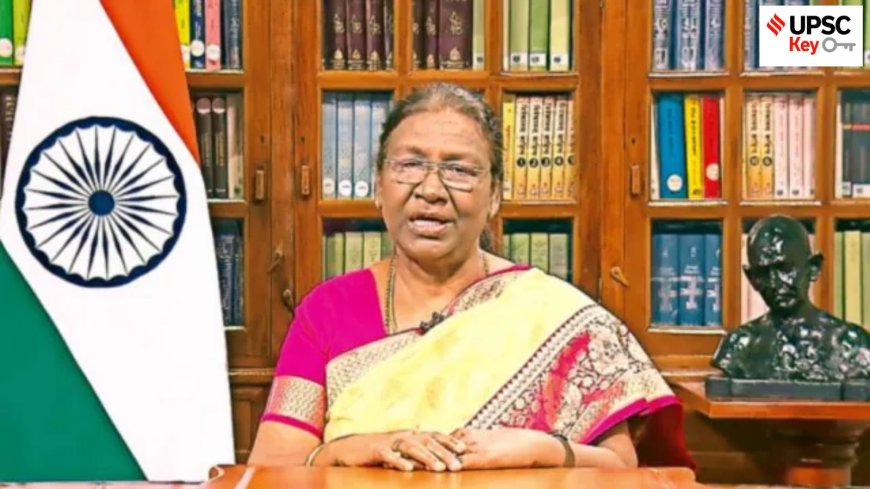UPSC Key: Mediation Act, Baglihar dam, and Caste Census

Asarkari - Sarkari News, Jobs & Updates
UPSC Key: Mediation Act, Baglihar dam, and Caste Census
By Priya Sharma
kam sabdo me kahein to: This article explores the newly enacted Mediation Act 2023, the strategic importance of the Baglihar Dam, and the complex debate surrounding the Caste Census in India, crucial topics for UPSC civil services examination preparation.
Introduction: Staying Ahead in UPSC Preparation
Hello Aspirants! Keeping abreast of current national and international developments is paramount for success in the UPSC Civil Services Examination. Understanding key legislation, significant infrastructure projects, and ongoing socio-political debates forms the bedrock of a strong preparation strategy. Today, we delve into three such critical topics: the Mediation Act, 2023, the Baglihar Dam, and the persistent discussion around a nationwide Caste Census. Staying updated on these issues is vital for both Prelims and Mains. Let's break them down for better understanding, brought to you by Asarkari - Sarkari News, Jobs & Updates.
The Mediation Act, 2023: A New Approach to Dispute Resolution
The Indian legal landscape witnessed a significant development with the enactment of the Mediation Act, 2023. This legislation aims to promote and facilitate mediation, especially institutional mediation, for the resolution of disputes, both commercial and otherwise. Its primary goal is to reduce the pendency of cases in courts and offer a structured, voluntary, and party-centric approach to resolving conflicts.
Key Features and Significance
One of the standout features is the provision for 'pre-litigation mediation'. Before approaching a court or specific tribunals, parties are encouraged (and in some cases, required) to attempt resolving their disputes through mediation. The Act establishes the Mediation Council of India, tasked with registering mediators and recognizing mediation service providers. It outlines a time-bound process, generally aiming for completion within 120 days (extendable by 60 days with consent). Importantly, mediated settlement agreements are legally binding and enforceable, similar to court judgments. This Act signifies a shift towards Alternative Dispute Resolution (ADR) mechanisms, potentially making justice delivery faster, more accessible, and less adversarial. For UPSC aspirants, this topic is crucial under Governance, Polity, and Law.
Baglihar Dam: Power, Water, and Geopolitics
Located on the Chenab River in the Doda district of Jammu and Kashmir, the Baglihar Dam (also known as Baglihar Hydroelectric Power Project) is a run-of-the-river power project. Unlike storage dams, run-of-the-river projects use the natural flow and elevation drop of a river to generate electricity with minimal water storage.
Strategic Importance and Controversies
The Baglihar Dam, with an installed capacity of 900 MW (Phase I & II combined), is vital for meeting the energy needs of Northern India, particularly Jammu and Kashmir. Its location on the Chenab, one of the western rivers allocated to Pakistan under the Indus Waters Treaty (IWT) of 1960 (though India is permitted certain uses like run-of-the-river projects), has made it a subject of discussion between India and Pakistan. Pakistan raised objections regarding the project's design during its construction, alleging violations of the IWT. The matter was referred to a World Bank-appointed neutral expert who ultimately upheld India's right to construct the dam with minor modifications. Understanding the Baglihar Dam involves aspects of Geography (river systems, energy resources), International Relations (India-Pakistan, water treaties), and Infrastructure development, making it a relevant topic for UPSC.
The Caste Census Debate: Data, Equity, and Politics
The demand for a nationwide Caste Census, enumerating population data based on caste identity, has resurfaced repeatedly in India's political and social discourse. While India conducts a regular decennial census, it hasn't collected comprehensive caste data for all groups (except SCs and STs) since 1931.
Arguments For and Against
Proponents argue that accurate, contemporary caste data is essential for effective policymaking. They believe it would help in better targeting welfare schemes, understanding socio-economic disparities among different caste groups (especially OBCs), and potentially reassessing reservation policies to ensure equity. The recent Caste Survey conducted by the Bihar government has added momentum to this demand. However, opponents express concerns that such an exercise could reinforce caste identities, potentially leading to social friction and political polarization. They also point towards the complexities involved in data collection and classification, given the fluid and intricate nature of caste identities across regions. There are also privacy concerns associated with collecting such sensitive data. The debate touches upon core issues of Social Justice, Indian Polity, Governance, and Sociology, making it indispensable for UPSC aspirants.
Conclusion: Integrating Knowledge for UPSC
The Mediation Act, Baglihar Dam, and the Caste Census debate are not just isolated current events; they represent evolving aspects of India's legal framework, infrastructure development, geopolitical positioning, and social dynamics. A thorough understanding of these topics, their nuances, and their interconnections is crucial for a holistic UPSC preparation. Keep analysing such developments critically. For more updates and detailed analysis relevant to government jobs and competitive exams, keep following Asarkari.
For continuous updates on sarkari news and job openings, visit https://asarkari.com.
Sincerely,
Team Asarkari
Keywords
UPSC current affairs, Mediation Act 2023 India, Baglihar Dam Chenab river, Caste Census India debate, UPSC preparation syllabus, Indus Waters Treaty India Pakistan, Alternate Dispute Resolution India, Socio-Economic Caste Census SECC, Jammu and Kashmir hydroelectric projects, Indian Polity social issues, Governance India, UPSC Prelims 2024, UPSC Mains preparation, Chenab river projects, Mediation Council of India, Bihar Caste Survey analysisWhat's Your Reaction?
 Like
0
Like
0
 Dislike
0
Dislike
0
 Love
0
Love
0
 Funny
0
Funny
0
 Angry
0
Angry
0
 Sad
0
Sad
0
 Wow
0
Wow
0







































